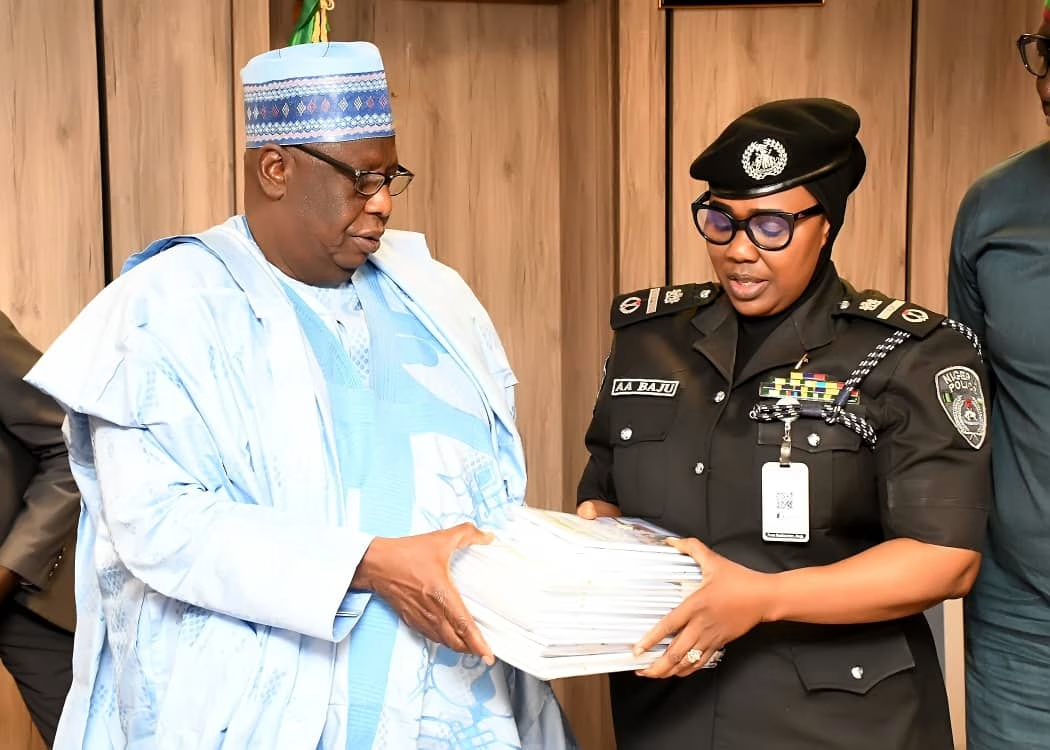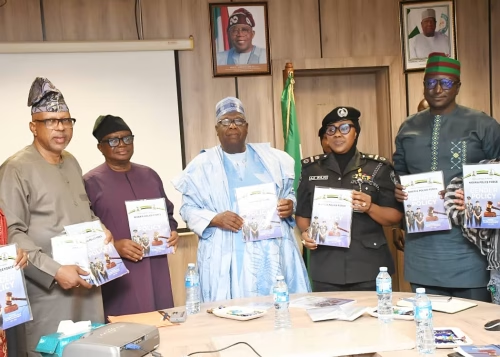By Tunde Olusunle
A titleless piece authored by a certain “Comrade Adabara Abduljelili El-Okene,” made the rounds on the social media last weekend. Shared on many platforms peopled largely by the Okun-Yoruba of Kogi State, the kernel of the piece was the insinuation of a *growing pattern of marginalisation of the Ebira people of Kogi State, by Nigerian Presidents from the Yoruba country.* Two of such Presidents, Abduljelili Okene observes in his missive, are Olusegun Obasanjo who served between 1999 and 2007, and Bola Tinubu, the incumbent who has been in office since 2023. El-Okene is an unknown quantity in national public intellection. The sole plausible claim of his script to authenticity, which should command a rejoinder, is a telephone number affixed to his payoff line at the bottom of the document. Aside from being an eternal student of Nigeria’s sociopolitics, I am myself from Kogi State.
Just so Abduljelili El-Okene knows a bit about me, I served three Governors of the state, the departed pioneer democratically elected Abubakar Audu, and his military successors, Colonels Paul Omeruo and Bzigu Afakirya, of blessed memory, between 1992 and 1997. For the avoidance of doubt, I was Director of Information and Public Affairs to Audu, and Chief Press Secretary to Omeruo and Afakirya. Substantially, I am a repertory of invaluable knowledge about sociopolitical fluxes in Kogi State through its evolution. In addition to this, I was a very close personal staff to Obasanjo all through the eight year duration of his regime. Having worked as his media attache during his pre-election campaign which began in the last quarter of 1998, I was subsequently appointed by him and deployed to the ante-room of his office, overlooking his oakwood desk and swivel chair in his armor-glazed office. I encountered and engaged with tons and tons of paperwork. Not many people are better qualified than I am, to perspectivise the issues raised by Abduljelili El-Okene.
Let me begin by educating Adabara El-Okene, that Obasanjo indeed took a well-informed decision to pragmatically mitigate the scripted exclusion and marginalisation of Okunland from state politics, during his regime. All through Obasanjo’s eight years in Aso Villa, the predominantly Igala-speaking Kogi Eastern zone, produced Abubakar Audu and Ibrahim Idris, who succeeded Audu as Governor, in 2003. All through these eight years, the *Ebiras produced the Deputy Governors in the recently transited Patrick Adaba, mni, and Philip Salawu. Salawu remained in office for eight years with Idris, both exiting office in January 2012.* A sensitive Obasanjo availed Okunland some reprieve from domestic political asphyxiation by ensuring that all four Ministers he appointed in his administration, were from that part of Kogi State. As against Adebara’s jumbled ordering of the list, General David Jemibewon, CFR, (Police Affairs); Chief Kola Jamodu, CON; (Commerce and Industry); Professor Eyitayo Lambo, (Health), and Chief Bayo Ojo, SAN, CON, served the Obasanjo era in that sequence. I should add that Prince Olusola Akanmode, who was tapped by Obasanjo’s deputy, Vice President Atiku Abubakar, GCON, as his Chief of Staff, had but his solid, sterling credentials to qualify him for the job
Despite the fact that El-Okene’s Ebira kinsfolk locked down the position of Deputy Governor of Kogi State all through his years in office, *Obasanjo appointed other respected Ebira technocrats into key positions in his government. Former banker, Alhaji Usman Bello who vied for, but lost in his bid to be Governor of Kogi State in 1999, was promptly compensated by Obasanjo who appointed him Nigeria’s Ambassador to Sudan, a position he held for four years. Engineer Joseph Makoju, CON, and Dr Onukaba Adinoyi-Ojo, both sadly of blessed memory, were Special Adviser on Power, and Managing Director of the Daily Times of Nigeria Plc, respectively. Following the privatisation of the Daily Times in 2003, Onukaba was taken up by Obasanjo’s deputy, Vice President Atiku Abubakar, GCON, as Media Adviser during Obasanjo’s second term in office. Within Obasanjo’s time in office, one of his closest aides, the late Wisdom Baiye, from Ebiraland, a career diplomat and Ambassador, was Deputy Chief of Protocol and Presidential Interpreter. You don’t get closer to a President than that.*
Abduljelili El-Okene remembers that Mohammed Bello Adoke, SAN, CFR, was Minister of Justice and Attorney General of the Federation, (AGF), under the administration of President Goodluck Jonathan, GCFR, between 2010 and 2015. He is, however, silent on the fact that *Austin Oniwon, who is also Ebira, was Group Managing Director, (GMD), of the coveted Nigerian National Petroleum Corporation, (NNPC), also under Jonathan. Within the Nigerian governance scheme, being GMD of the NNPC is better preferred than being Minister in several ministries. Yusuf Abubakar, a retired Army General also from the Ebira nationality, was Ambassador of Nigeria to South Korea, within the duration of the subsisting Fourth Republic.*
To refresh Abduljelili El-Okene’s mind, if political capital is to be measured by totalitarian capture of state power, his people have made a good job of their eventful occupation of *Lugard House, Lokoja,* seat of administration of Kogi State within the past 10 years. Yahaya Bello’s fortuitous advent as Governor of Kogi State in January 2016, has consolidated Ebira dominance of the levers of the politics of the state. Abubakar Audu who was coasting home as flag bearer of the All Progressives Congress, (APC), in the November 2015 gubernatorial poll during which he contested against the erstwhile incumbent, Captain Idris Wada, of the Peoples Democratic Party, (PDP), died mysteriously before the conclusion of the election. Bello who emerged second in the primary which was to produce Audu as Governor, became the “beneficiary” of the electoral votes already garnered by Audu, in an unprecedented, most astounding, even uncanny turn of events.
Bello’s eight year rule dug deep gashes on the minds of the generality of Kogi indigenes, which continue to ache even till this day. He pampered his people with projects and political patronage. His style was famously totalitarian and absolutist. He privileged himself a “third term” by singlehandedly recruiting and anointing his biological cousin as they say, Ahmed Ododo, as successor. Bello, for the information of Abduljelili El-Okene, has assumed the role of self-styled godfather of Ebira politics. In Ododo’s teething weeks as Governor, he affirmed to his kinsmen, Bello is the supremo who could overrule him as Governor on any subject related to Ebira sociopolitics!
Bello announced while hosting political leaders from Okunland during a recent yuletide visit to him, that “discussions about power shift to that part of the state, can only be negotiated when his protege, Ododo, must have completed his second term in 2031!” This is on record. El-Okene will do well to surf the internet to find the relevant video clip. Bello is standing trial on allegations of corrupt misappropriation of over N100Billion, during his eight year quasi-fascism. His recent request to seek medical attention abroad mid-trial, was flatly rejected by the court hearing his matter, which admonished him to seek treatment in the “world class hospital” he reportedly built in Okene, the political and cultural headquarters of Kogi Central district. Bello recently unleashed a N1.2Billion, ($30million) customised *Escalade-based armored Rezvani Vengeance SUV,* reputed to be one of the “world’s toughest three-row SUVs.” He has also taken a fourth wife, consolidating his place as contemporary god of Kogi politics.
Abduljelili El-Okene’s disappointment with Tinubu for not consulting with the “incumbent Governor of Kogi State or Ebira stakeholders” before making appointments close to the heart of his people, is palpable, albeit laughable. That Tinubu has elected to compensate the family of late Governor Audu a major figure in Nigeria’s Third and Fourth Republic politics by appointing his son Shaibu, (Igalaland) Minister for Steel, is distressing to El-Okene. That Tinubu has also looked the way of Okunland in his choice of Professor Nasir Naeem Abdulsalam as Managing Director of the Ajaokuta Steel Company, is equally vexatious to El-Okene. It must be stated very unambiguously that it is presumptuous of him or any other person for that matter, to think the President owes them any obligations whatsoever in make his preferences and decisions. The buck stops on his desk. The database of qualified Nigerians across disciplines available to the President is humongous. His obligation to Nigerians is to make the best decisions in the interest of the generality of his constituents, irrespective of ethnicity or religion. Come to think of it, Tinubu could well have appointed an indigene of his home state, Lagos as Minister of the Federal Capital Territory Administration, (FCTA), for the period of his sojourn in State House, Abuja!
El-Okene’s people occupy four of the five local councils in Kogi Central. They have historically and eternally locked out the smaller Ogori and Magongo ethnicities in their district from aspiring to be Senator or House of Representatives member. He has equally obliged us a sneak preview of the plan by Kogi Central to hold on to power beyond 2027, re-echoing Yahaya Bello’s earlier declaration of “No Vacancy in Lugard House, till 2027.” It has been proffered that the recent upsurge in kidnapping, banditry and the orchestrated insecurity in Okunland, is rooted in the importation of Fulani elements from the core North by Bello in his time, and their dispersal across the acreage, ahead of a time like this. The agenda is to distractively engage the Okun in repelling the marauding onslaught against its territory, as the race for 2027 gathers momentum. This is to weaken the capacity of the Okun people and their comrades in Kogi West to focusedly pursue its turn at the political helm of Kogi State. Okun people and their kith across Kogi West have previously punctured the fallacy about being the smallest voting block in the senatorial tripod in the state. This is evidenced by results from recent elections, beginning from 2015.
Abduljelili El-Okene’s simulated wolf-cry in the name of his brethren stems from apprehensions about the bright and plausible prospects for the emergence of an Okun-Yoruba Governor of Kogi State under the superintendence of President Tinubu. A people who have gifted Nigeria the quality of people El-Okene earlier recalled to have served Nigeria as Ministers, with legions in the wings, cannot be disregarded forever. El-Okene and his sponsors have indeed chosen the path of selective amnesia in their present campaign. They have conveniently discounted the fact that the first Governor of the Old Kwara State during the Second Republic, Alhaji Adamu Atta, who ruled for four years between 1979 and 1983, was Ebira. Bello added an eight year stretch to the Adamu Atta milieu, while Ododo’s first four years will extend this vice grip to 16 years. All of these have been at the total exclusion of Kogi West and Okunland. This is the manner in which the third component of the Kogi State sociopolitical tripod, is serially disrespectfully undermined.
Make no mistakes. The people of Okunland are neither a colony of *Lookmans* or consigned to forever *siddon look,* in the politics and development of their state. Until there is a national geopolitical restructuring which takes them out of the present Kogi State, the Okun people will very rightly and robustly stake a claim for the executive leadership of our *confluence state.* Across Nigeria, several states have sustainably perfected the rotation of the governorship among various senatorial districts, ensuring political inclusion. Abia, Akwa Ibom, Anambra, Cross River, Edo, Delta, Enugu, Lagos, are just a few examples of states which have jettisoned “winner takes all politics” and committed to giving every section of the various states, a bite of the pie. Okun people will stake a robust and determined claim to Lugard House, Lokoja, in 2027. *Awalokan,* it is our turn, to adapt Tinubu’s 2023 *Emilokan* assertion, to the effect that it was undeniably his turn to call the shots from Aso Villa, Abuja.
*Tunde Olusunle, PhD, Fellow of the Association of Nigerian Authors, (FANA), is an Adjunct Professor of Creative Writing at the University of Abuja*
















